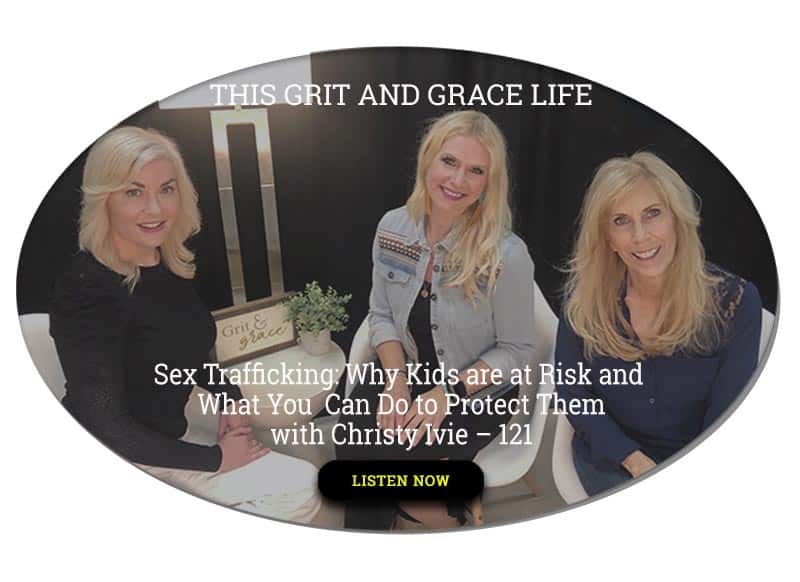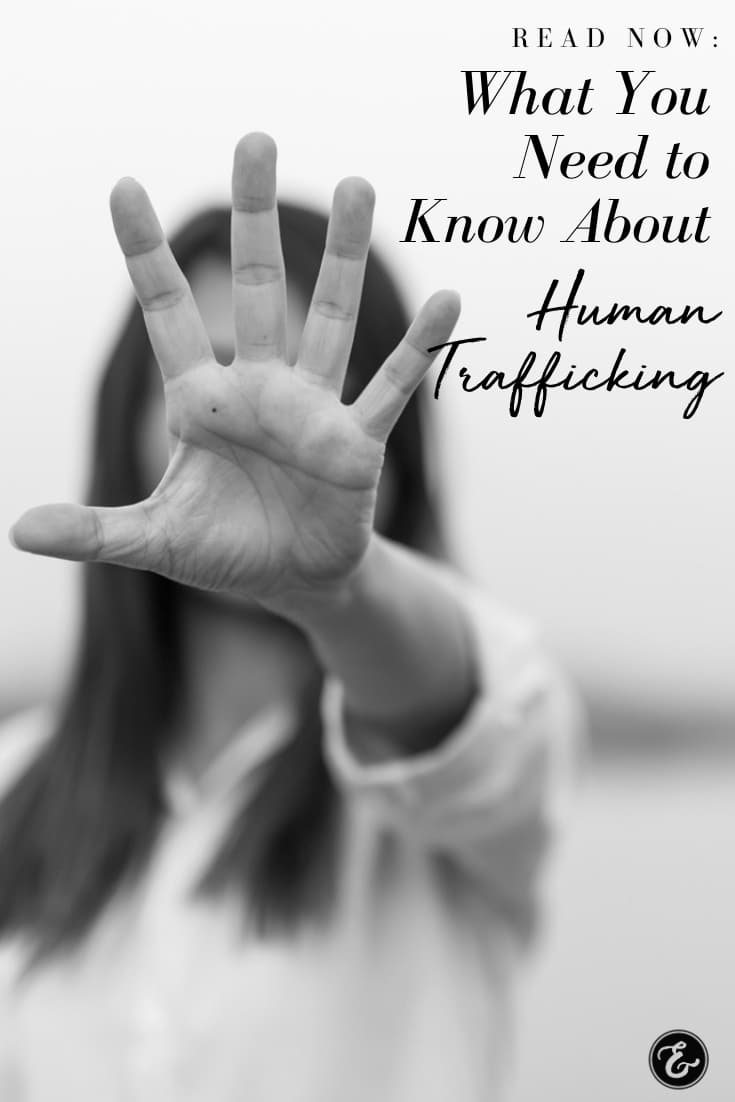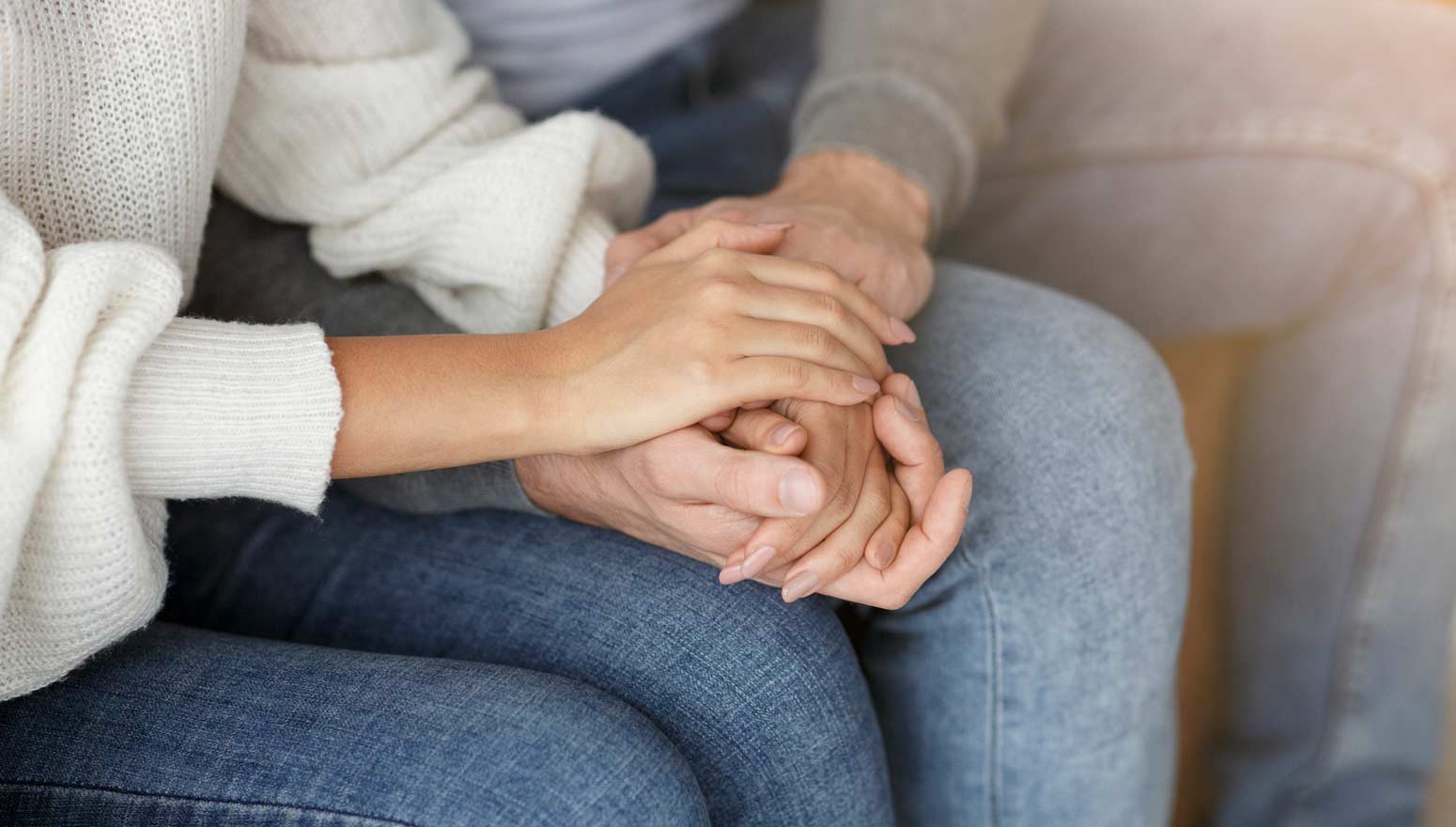This time of year my Facebook feed is always showing me memories where I am wearing a black dress. An overlook in Idaho, at the Golden Gate Bridge, on the playground, at that party—in all of these pictures I am wearing that black dress. There are pictures on the beach, in the snow, when I was healthy, while I was sick, and others where I have newborn spit-up on my shoulder. Heck, I have a whole month of pictures where I am flaunting bright red hair like the mermaid, Ariel (still disappointingly finless, but in that black dress)!
My black dress is ordinary, but it does extraordinary things. For starters, it represents over $75,000 raised to help bring freedom to victims to human trafficking.
It didn’t begin this way. Nine years ago I happened across an article about a girl who decided to wear the same black dress each and every day for a year to raise funds and awareness to fight trafficking. And although I have tried to track down that story without luck, God used it to challenge me to do something similar—wear a black dress for a month to raise awareness and funds for a justice issue.
Trapped in Ordinary Motherhood
There are the Pinterest queens and rockstars of the healthy meals genre of stay-at-home moms, with sparkling floors and who only ever dreamed of rocking their babies to sleep. And then there are moms like me, who feel like the failures of the dream. Not only would I literally let my kids eat dry Cheerios off our not-so-clean floor; I was the type of stay-at-home mom who was never actually at home. I spent our days exploring, kids in tow, while starting ministries and organizations (some of which failed and some that took off).
I felt so out of place, a fish on a hook. I still have to remind myself to not feel ashamed of this confession: I was trapped by motherhood, America, and an ordinary life.
You see, when I was 18 (and a little bit of a radical, working for an international humanitarian missions organization) I promised God I would do anything for him. Building orphanages in Africa, being a musician in Seattle’s grunge music scene, wearing a burqa in Afghanistan…even backpacking two days up to a village in Siberia wasn’t off the table.
My only qualification was that I wouldn’t be a stay-at-home mom in America. I surrendered everything to God, in exchange for a promise of a life on mission of excitement and adventure. I surrendered everything except a life that I was convinced could only be anything but extraordinary.
Fast forward a few years and there I was, surrounded by white picket fences, McMansions and living right outside our capital in the good ol’ U.S. of A. Let’s just say I didn’t fit in very well. It wasn’t uncommon for me to be told that I didn’t belong with the other engineers, data analysts, politicians, and employees of three-letter agencies. (My nose piercing, hippie shirts, and flip-flops in winter were also a tell.) It wasn’t until I had a baby and started wearing tennis skirts (oh yes, I did), thereby stereotyping myself into the group of housewives, did I start feeling like I might have a potential of belonging.
I surrendered everything to God, in exchange for a promise of a life on mission of excitement and adventure. My only qualification was that I wouldn’t be a stay-at-home mom in America.
But no matter how hard I tried, I couldn’t give up the notion that there was more than this. And, I wouldn’t (or more accurately, I couldn’t), give-up the dream that I was born to make a difference in the world. Even if I lived under a facade of perfection in a planned community, one that hid both global and local suffering well, the knowledge that injustice and poverty hadn’t ceased was a never-ending and persistent nag that had hijacked a corner of my mind (and made a ramshackle home there).
So by day I played with fingerpaint, gave baths, and changed diapers. At night, while nursing my babies, I wrote papers and blog posts on social issues like orphan care, public welfare, refugees, and human trafficking. I began pouring as much energy as I could, every drop I could spare, outside of my home. I don’t regret it, as through this season I discovered everyday mamas can actually do a lot to make a difference with their littles in tow. But my need to change the world was never satiated and my heart was always clamoring for anything that could be called extraordinary and radical.
The majority of my adult life, God has had to teach me to be content in the ordinary. If this is where you are on your own journey, you aren’t there alone. I was the worst of the uncontented; the greatest sinner of finding my worth in the mission I passionately executed for God on behalf of the poor and oppressed.
But as God gently began leading me to find my worth in the assuaging truth that I am simply his and he is mine, he also decided to use the ordinary for the extraordinary. (On the side, of course.)
Forging a Path For the Everyday Woman
As a mom, living life in the richest suburbs of America, I felt like it was impossible to go where I wanted to go, let alone inspire those around me to respond to the injustices happening in the world around us. It was in this angst I put on that black dress for a month. 
To my surprise, it changed me. It became a daily fast, accompanied with prayer for those who have limited freedom. But to others, my dress was a strange sort of beacon. It was a signal that they too, they who weren’t even sure if they wanted to wake up to injustices in the world, could do something about them.
So the next year, I decided to do it again. And this time, I invited my friends to join me in raising money for an anti-trafficking organization I admired. Once again, women put on their little black dress, and through that month I saw them become committed to the anti-trafficking movement. Some of them fundraised, but some didn’t. Some posted on social media a lot, using it as a platform to share facts about human trafficking, but others didn’t. A few of us threw some events that created awareness and started some great discussions. But no matter how much or how little we did, our ordinary black dresses changed all of us as we changed the world a little.
I was thoroughly surprised to see that this small act of defiance in a little black dress could mean something. And I began to suspect it might fill a gaping chasm I’d been noticing in the world of advocates, activists, and abolitionists. Namely, it is difficult to even become one because there are so few easy paths for ordinary people to learn and act without there also being a high commitment of time, energy, or money (all of which are very limited for busy moms).
There are a lot of ordinary people like me who want to make a difference in the world, but just don’t know how to start. So each spring since 2012, random people around the country and the world join me in our annual 31-day challenge, Blackout Trafficking.
This ordinary dress became a path.
Serving the Small Guys

I might not be able to do too much, but as a mom in the suburbs, I could keep creating awareness.
In addition, while leading this other organization, I felt how far $1,000 could go to help small nonprofits on the ground. This is a drop in the bucket for big organizations who already have marketing teams, but for the little guys? It is everything.
I might not be able to raise a lot on my own, but together with my friends in black, we could raise a handful or two of these thousands—providing an incredible value to smaller nonprofits.
I also became acquainted with the type of people who ran these small organizations, often overworked, burning out, and frustrated they don’t have enough bandwidth to do all things well. Those providing victim services, teaching prevention in schools, and empowering survivors of trafficking are doing so because those are their God-given missions. Doing great marketing and fundraising is necessary only to make that vision come alive, not because it is their mission.
Most of my mommy time was still spent on playdates and teaching the ABCs. But most of my time as the executive director of this local anti-trafficking organization was trying to find funding for our mission, or find anyone with willingness to be trained—including moms like me—who would give of their time or talent.
Blackout Trafficking became an avenue where we could serve smaller nonprofits, alleviating their burden of marketing and fundraising. Many discount this as a little thing, but it is an extraordinary gift to the organizations with whom we partner.
Why I Really Still Do Blackout Trafficking
Our month in one black piece of clothing (which evolved to allow participants to wear something other than a dress, ordinary and extraordinary as they are) became a small movement because it was and still is needed. Years later, what we’ve accomplished together in a dress, shirt, cardigan, vest, scarf, tie, tank, hat, stilettos, etc., astounds me. We’ve raised money, encouraged nonprofit staff, helped people recognize and prevent trafficking cases, collected tangible donations, and raised up advocates to bring freedom to modern slaves and the exploited from our neighborhoods to the other side of the globe.
God used something so ordinary to fulfill my dreams of having a family while waking people up and giving them a way to respond to things like human trafficking. Leave it to God to do something extraordinary with my rags (which is what that little black dress can disintegrate into by the end of month).
Honestly, as the founder, sometimes I feel jealous that I don’t have a choice of whether I will join Blackout Trafficking. As of now, to keep this small movement going, I must. But the truth is, even if I felt it was an option, I would still choose to don my black dress in March. I’m in too deep.
Our organization uses the mantra “everyone deserves a chance to be free” to help people connect with why they wear their black item. But for me, my why runs deeper. Yes, I do it for the freedom of those exploited. Yes, I do it because I want to give everyday people an avenue to act. And yes, I do it for the small nonprofits like the one I used to run, who need someone to come alongside them. But the main reason I participate in Blackout Trafficking is because God reveals himself and who I am in new ways to me each year as I take my old black dress and combine it with the life of an ordinary mom in the suburbs.
Even if we are bursting from the seams to be or do something different, God will never stop shepherding us to himself, where we find he is so much more beautiful and fulfilling than our mission. But as you learn to be content, don’t be surprised if God simultaneously cultivates your ordinary and insignificant for his own renown. You just might have a black dress sitting in the back of your closet, too.
If you don’t like human trafficking either, pick up 10 Simple Ways to Fight Human Trafficking to start. And go ahead and check out Blackout Trafficking if you are curious if this challenge of one black item of clothing through March just might be a good next step for you.

For related articles, start here:
This Is Why Women Are Great Defenders of the Helpless
Dear SAHM: I See You and Want You to Know These 8 Things
The Solution to the Sex Trafficking Problem
Ask Dr. Zoe – Why Do Strong Independent Women Scare Men?
Does Finding Your Purpose Really Matter?
What You Need to Know About Human Trafficking
Don’t miss these popular articles for strong women:
How to Feel Your Emotions in a Healthy Way With Dr. Zoe Shaw
5 Inspiring Women of Faith I Love to Follow
What Happened When This Mom Stopped Doing All the Things
He Brings Me Flowers, but Is That Enough?
How Do I Know What Defines Me?
You’ll love this podcast episode from This Grit and Grace Life: Sex Trafficking: Why Kids are at Risk and What You Can Do to Protect Them with Christy Ivie – 121!













